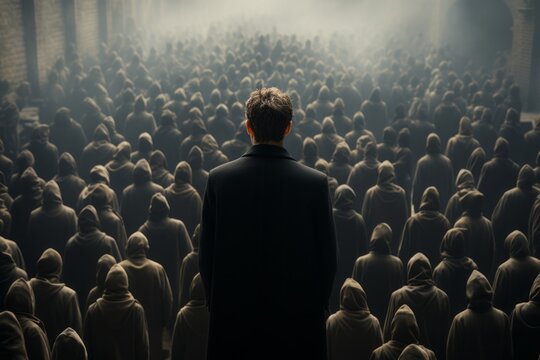The cults of the United States its not what people think, our minds often conjure up images of secretive societies, charismatic leaders, and unconventional beliefs. The United States has seen its fair share of such groups throughout history, captivating the public’s imagination and raising questions about the nature of human gatherings. In this article, we will delve into the mysterious world of human-gathering cults in the United States, exploring their origins, beliefs, and the impact they have had on society.
The Allure of Cults
Human gathering cults have existed for centuries, drawing individuals seeking purpose, belonging, spiritual, and religious enlightenment. These groups often emerge during times of social unrest or when individuals feel disillusioned with mainstream society. Here the Cult leaders present an alternative route to individuals by promising a sense of belonging, personal development, and even heaven through their attractive approach and persuasive speech.
A Glimpse into Different Cults
1. The Manson Family: Perhaps one of the most infamous cults in American history, the Manson Family, led by Charles Manson, gained notoriety for their involvement in a series of murders in the late 1960s. Manson’s charismatic personality and ability to manipulate his followers led to a reign of terror that shocked the nation.
2. Heaven’s Gate: In the 1990s, Heaven’s Gate gained widespread attention due to its belief in extraterrestrial life and the world’s impending end. Led by Marshall Applewhite, the cult members believed that by shedding their earthly bodies, they would be transported to a higher plane of existence. Tragically, this belief led to a mass suicide in 1997.
3. The Branch Davidians: The Branch Davidians, led by David Koresh, made headlines in 1993 when a standoff with federal agents in Waco, Texas, resulted in the deaths of over 70 people. The group’s apocalyptic beliefs and stockpiling of weapons drew the attention of authorities, leading to a tragic and violent end.
The Psychology Behind Cults
What drives individuals to join cults and become devoted followers? The answer lies in a combination of psychological factors, including the need for belonging, the desire for meaning and purpose, and susceptibility to manipulation. Cult leaders often employ tactics such as love bombing, isolation from friends and family, and the creation of an us-versus-them mentality to control their followers.
Furthermore, cults often prey on vulnerable individuals, offering them a sense of identity and purpose that they may be lacking in their lives. By providing a tightly-knit community and a set of beliefs that promise answers to life’s most profound questions, cults can easily trap those who are searching for meaning.
The Impact on Society
The influence of human gathering cults on society cannot be underestimated. While some cults may remain relatively small and unknown, others have had a significant impact on the cultural, political, and religious landscape of the United States.
For example, the People’s Temple, led by Jim Jones, gained a large following in the 1970s. The tragic events that unfolded in Jonestown, Guyana, according to Google over 900 members died in a mass murder-suicide, shocked the world and led to increased scrutiny of cult activities.
Additionally, the rise of the internet has made it easier for cults to recruit and spread their beliefs. Online forums, social media platforms, and websites dedicated to promoting cult ideologies have allowed these groups to reach a wider audience and exert their influence on vulnerable individuals.
The Role of Education and Awareness
As a society, we must educate ourselves about the warning signs of cults involvement and promote critical thinking skills. By understanding the psychological tactics employed by cult leaders and fostering an environment of open dialogue, we can empower individuals to make informed decisions and protect themselves from potential harm.
Furthermore, providing support and resources for those who have left cults is essential for their reintegration into society. Cult survivors often face significant challenges in rebuilding their lives and recovering from the psychological trauma they have endured.
Conclusion
The world of human gathering cults is a complex and intriguing one. While some may view cults as mere curiosities or cautionary tales, it is important to recognize the profound impact they can have on individuals and society as a whole. By understanding the allure of cults, the psychology behind their formation, and the potential dangers they pose, we can work towards creating a society that is resilient, informed, and supportive.
Read More interesting Topics With : YOURS
- Roblox Unblocked 66: Unlocking Endless Gaming Possibilities
- CoolMathGames Unblocked: Your Ultimate Destination for Fun and Learning
- Derrick Henry Cowboys: A Name that resonate in NFL
- The Alexee Trevizo Case: Latest Updates, Verdict Insights, and Ongoing Legal Battles in 2024
- Tyson vs Paul: A Clash of Generations in the Boxing Ring





